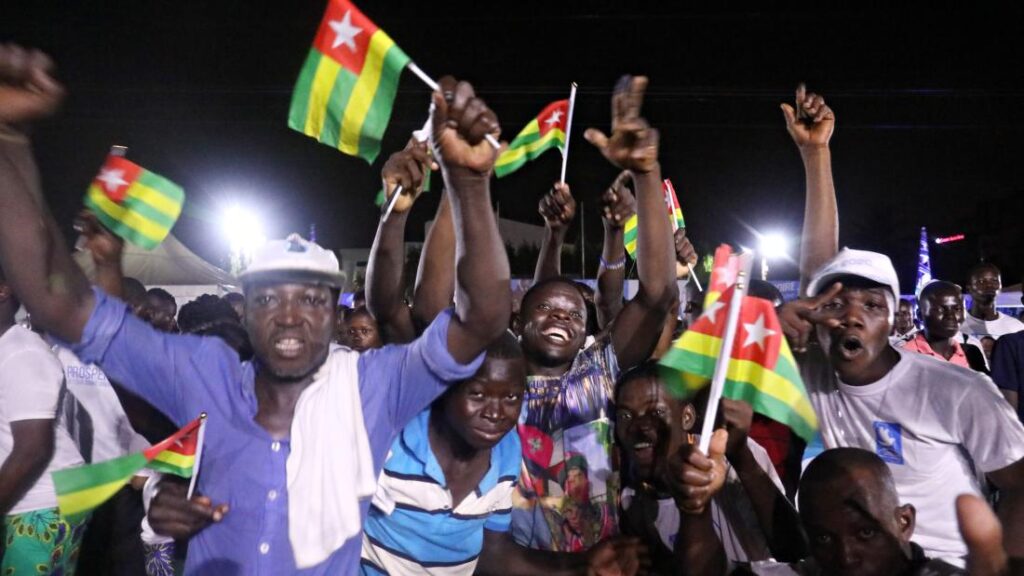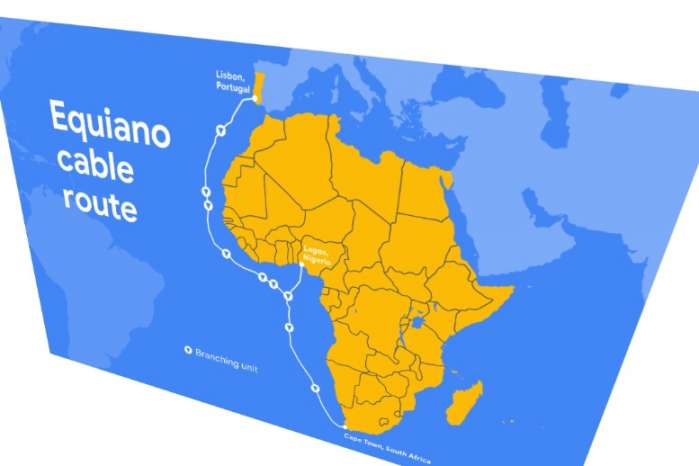•Google’s Equiano chose Togo first and may move to Nigeria next
By Alexander Onukwue
Equiano, Google’s subsea internet cable in Africa, will make its first landing in Togo this month.
First announced in 2019, Equiano is Google’s 14th investment in internet subsea cables but the first dedicated to internet access in Africa. It is expected to travel from Portugal to South Africa and is part of the company’s $1 billion Africa investment that includes a $50 million venture capital startup fund.
The landing in Togo may come as a surprise since an initial map of the project suggested it would branch out first in Lagos, Nigeria, arguably Africa’s technology hub. But Cina Lawson, Togo’s minister for digital economy and digital transformation, said her government successfully made the case to Google that it should be Togo instead.

Togo first, Nigeria next?
Raising west Africa’s internet capacity
Equiano lands in Togo thanks to a joint venture public-private partnership between Société d’Infrastructures Numériques (SIN), which is the country’s telecommunications asset company, and CSquared, a telecoms infrastructure company that started operating in Uganda in 2011.
CSquared Woezon, the JV formed, is a Togolese company and will manage the landing station, and manage fiber optics on high-voltage power lines that connect Togo to Ghana, Burkina Faso, and Benin, Lawson told Quartz in an interview. It will also extend internet services from the subsea cable to other parts of the country, acting as the country’s national broadband backbone.
Landing fiber optic cable is a big deal for Togo. Despite 72% of the population having mobile phones and ranking 6th in Africa on the World Bank’s (now suspended) ease of doing business list, only a third of the population is covered by mobile broadband, according to the GSMA’s Mobile Connectivity Index. While the world moves ahead with 5G, most Togolese still rely on 3G and even that only covers two thirds of the country.
Lawson says Google’s cable, projected to offer 20 times more bandwidth than other cables in west Africa, will fill a yearning for Togo’s population whose average age is 19. “When you are 18, what you want is really strong internet connection. And if you want that, you need fiber optic networks.”

Google’s Equiano chose Togo instead of Nigeria
Togo is seeking investment to build out its digital economy
It may be overshadowed by Nigeria, Ghana and its other west African neighbors, but Togo has shown promise in adopting digital technologies.
When the pandemic started, it developed Novissi, distributing $34 million to 920,000 people using mobile money accounts. That project was supported by researchers at the University of California, Berkeley’s Center for Effective Global Action (CEGA) and a $10 million grant from GiveDirectly.
Equiano is expected to add $351 million (pdf) to Togo’s economic output by 2025. To fully develop this capacity however, Lawson says Togo will seek up to €300 million. “We are talking to lenders to put fiber on all electric lines. It is a process but we will get there soon.”
Credit | Quartz Africa

